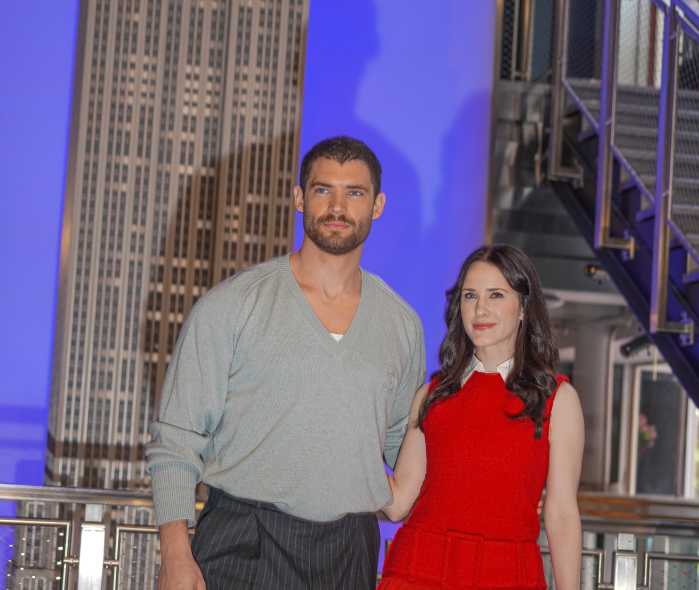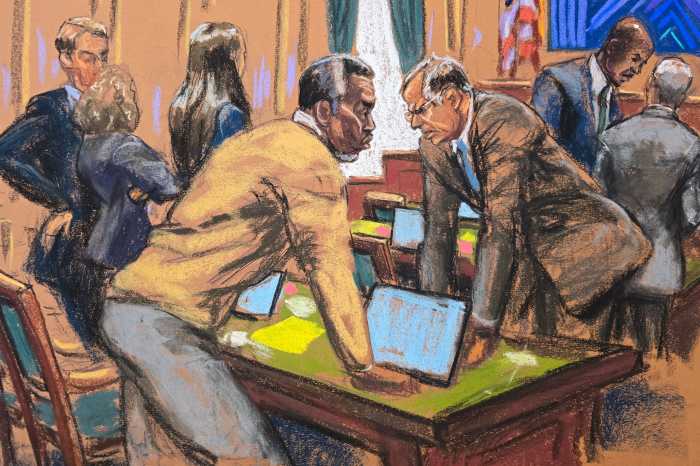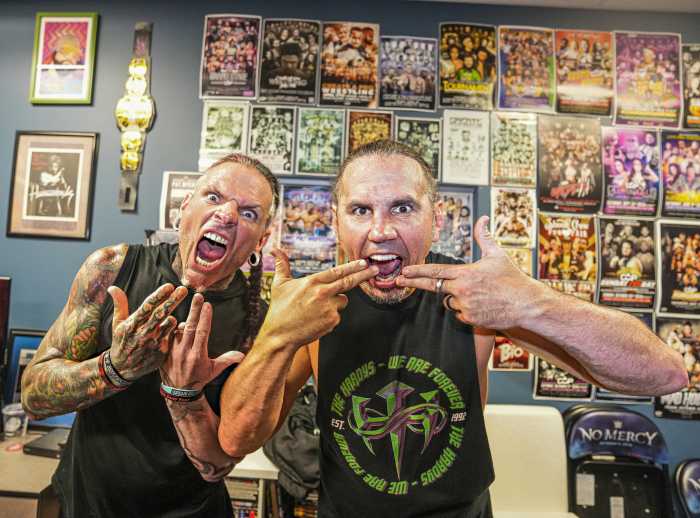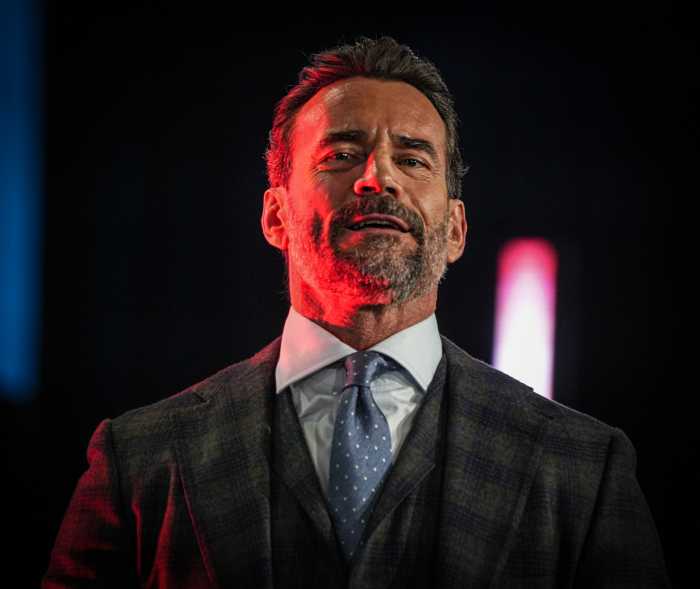Sometimes dreams don’t come true — or that’s what Sarah Steele is hoping, after the doozy the young actress just had recently, in which she got to the theater late for a show and . . . umm . . . we’ll let her tell it.
Steele, 27, who may be familiar to fans of “The Good Wife” (she plays Alan Cumming’s daughter), is starring in the new Broadway play “The Humans,” by Stephen Karam, which opened Feb. 18 at the Helen Hayes Theatre. Directed by Tony Award winner Joe Mantello, the play deals with dreams, plus an all-too-frightening reality, as Brigid (Steele) spends Thanksgiving with her Irish-Catholic parents from Scranton (Jayne Houdyshell, Reed Birney) and the boyfriend they don’t quite understand (Arian Moayed) in the Chinatown apartment she knows they think is cruddy. Her sister (Cassie Beck) is there for moral support, but she’s got problems of her own. That’s the gist of this tale, which flips from hilarious to heart-wrenching to haunting — downright spooky, even — and back again.
After her big break in the offbeat 2004 film “Spanglish” as Adam Sandler and Téa Leoni’s awkward teenage daughter, Steele put Hollywood on hold and attended Columbia University. She later appeared in several Off-Broadway plays, and in 2014 made her Broadway debut co-starring with Blythe Danner in “The Country House.” She spoke with Newsday contributor Joseph V. Amodio.
You grew up in Philly; your parents are doctors. Are your stage mom and dad reminiscent of your own?
Actually, the characters are nothing like my parents, and I had a hard time with the mother-daughter relationship at first. I think I idolize my mother more than anyone I know. [She chuckles.] In rehearsals, Joe Mantello and Stephen Karam said things like, “You’re afraid you’ll grow up to be your mother.” And I’ve always thought — if I could grow up to be my mother . . . that would be amazing. I’m worried I won’t be able to achieve everything she’s done. So I didn’t relate.
You’re onstage pretty much the whole time — and it’s quite a set. A real duplex apartment, two stories high.
It’s great. And I love that I don’t have to exit. (She laughs.) I’m kind of spoiled — in many of the plays I’ve done, I’ve been onstage the whole time. It’s actually a challenge for me when I have to spend significant portions of a play offstage.
There are lines that really ring true to New Yorkers. Like when your parents are concerned your apartment looks onto an air shaft . . .
And we say, “It’s not an air shaft, it’s an inner courtyard.” Yes! I think it’s hard for New Yorkers when out-of-town parents don’t get how great your apartment is. I mean, onstage, that is a great apartment. So much space. I’ve definitely been in that situation, where I’m like, “Yeah, I know my friend lives in the living room. But look at this place!” And the parents are thinking . . . this is not a good situation.
There’s a lot of talk in the show about dreams. Do you remember yours?
I do. Actually . . . I had a dream last night that I fell off the top level of the set.
Oh, no.
But I miraculously landed on the couch onstage. I told Cassie as we were going on. She was like, “Maybe it means if you fall, everything will be OK.” In the dream, I was really, really late getting to the show, I just made it, and didn’t have time to put on my shoes, so I ran onstage with no shoes. And just slid off. I also have dreams where I have to go onstage and I’ve never read the play before.
I occasionally still get the “Oh, God, I’ve been in class all semester but haven’t read a single book.”
Yes! I have that, too! I missed the day to drop the class — now I have to take the exam.
You mentioned how it can be tough identifying with onstage parents. What about Alan Cumming? He — or his “Good Wife” character, Eli Gold — is not your typical dad.
True. This is what I love about the show — and, oh, I’m so sad it’s ending. They write specifically for their actors. I think they saw Alan and me in scenes early on — back when it was a more conventional relationship — and they saw how we interacted. And they decided to make it what it is now, these two independent people who happen to have this father-daughter relationship but . . . really treat each other like peers. We have a blast. He did a Christmas card of us this year — not a real one. On Instagram. He took a picture of us . . . and wrote, “From our family to yours, an Eli and Marissa Gold Christmas.” Now that’s a funky family unit.






































